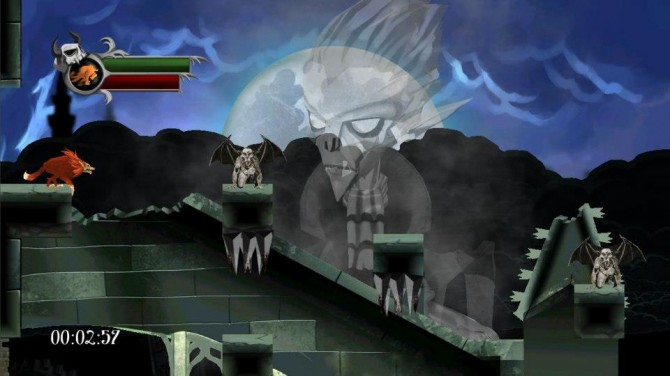Indie developers have more freedom than ever when it comes to distributing their games. They can self-publish their projects to just about any platform at this point, but that’s not stopping publisher Majesco from reaching out to small studios with a new division specifically built to attract indie studios.
The new brand is Midnight City. It’s a small offshoot of Majesco that will handle all of the publisher’s dealings with the indie side of the business, and it already has 10 games in its portfolio that it intends to release on Xbox Live Arcade, PlayStation Network, and PC digital download sites like Steam. The games include a stylish side-scroller and a quirky physics puzzler. Midnight City released the following announcement trailer to correspond with its entrance into the industry:
“[Midnight City] s kinda like Miramax to [Majesco’s] Disney,” Midnight City vice president of publishing Casey Lynch told GamesBeat. “We’re totally focused on indie development and publishing.”
Lynch says that if Midnight City had a single philosophy behind the titles it wants to publish, it’s games that have something to say.
“It could be everything from games that are just super fun all the way to games that are introspective and cerebral — that get into your mind,” said Lynch. “The kinds of games that get into your mind and stick with you.”
Lynch is one half of the team behind Midnight City. He is the former editor-in-chief of major gaming website IGN. The other half is former Reverb Communications and publishing chief executive Doug Kennedy, who is now Midnight City’s vice president of business development. Together, the two industry veterans pieced the label together in the time since the Electronic Entertainment Expo trade show in early June.
“We really feel like gaming has gone through a lot of ups and downs,” said Lynch. “It’s continuing to change — and especially on the indie side, we think publishing needs to change with it.”
Midnight City is that change, Lynch believes. The publishing imprint will have access to Majesco’s resources, industry contacts, and infrastructure, but the smaller team means that Midnight City can form a more intimate relationship with indie developers.
“We’re in this very live, agile state where we’re able to identify games that we’re interested in, talk with the developers, and figure out a way to work with them,” said Lynch. “We feel every developer is different. A studio that has 12 people working at it with one overseeing product management, one overseeing marketing, and one overseeing first-party relationships is different than a two-person studio composed of an artist and engineer.”
This is also where Midnight City is positioning itself to fit into the new publishing landscape. Developers can self-publish, but the process is difficult and expensive for many smaller studios. Midnight City wants to swoop in and aid where it can. Whether that’s helping with a submission process for a console or with porting a game to another platform, it’s all different depending on the developer’s needs.
The company also doesn’t want to take over the developers’ properties.
“It’s their game. They developed it,” said Lynch.
Midnight City’s debut roster includes a variety of titles that it plans to show off at the Penny Arcade Expo show in Seattle this weekend:
- Slender: The Arrival — This is the official continuation of Slender: The Eight Pages. It takes the experimental gameplay of that title and expands on it with a new storyline and support for the Oculus Rift virtual-reality visor.
- Videoball — A simplified sports game from developer Action Button Entertainment that has basic geometric shapes fighting to get a ball into the endzone.
- The Bridge — Developer Ty Taylor’s 2D logic puzzler that takes many artistic liberties with Newtonian physics.
- Blood of the Werewolf — A 2D platformer from Scientifically Proven that has players trying to avenge the murder of their husband as Selena the werewolf.
- Krautscape — A competitive multiplayer racer from developer Mario von Rickenbach that enables the leading racer to determine the course, which generates on the fly during play.
- Organic Panic — Developer Last Limb’s cooperative beat-em-up platformer where fruits and vegetables battle to save the world from meats and cheese.
- High Strangeness — A role-playing game that takes its inspiration from the 8- and 16-bit era from developer Barnyard Intelligence Games.
- Super Rad Raygun: The Lost Levels — A platformer from Tru Fun Entertainment with Game Boy-inspired graphics that has Rad Raygun traveling the world to save the ’80s from communist robots.
- Grapple — Tuesday Society Games’ 3D physics platformer that has players controlling a ball of goo in an obstacle course.
VentureBeat's mission is to be a digital town square for technical decision-makers to gain knowledge about transformative enterprise technology and transact. Learn More

